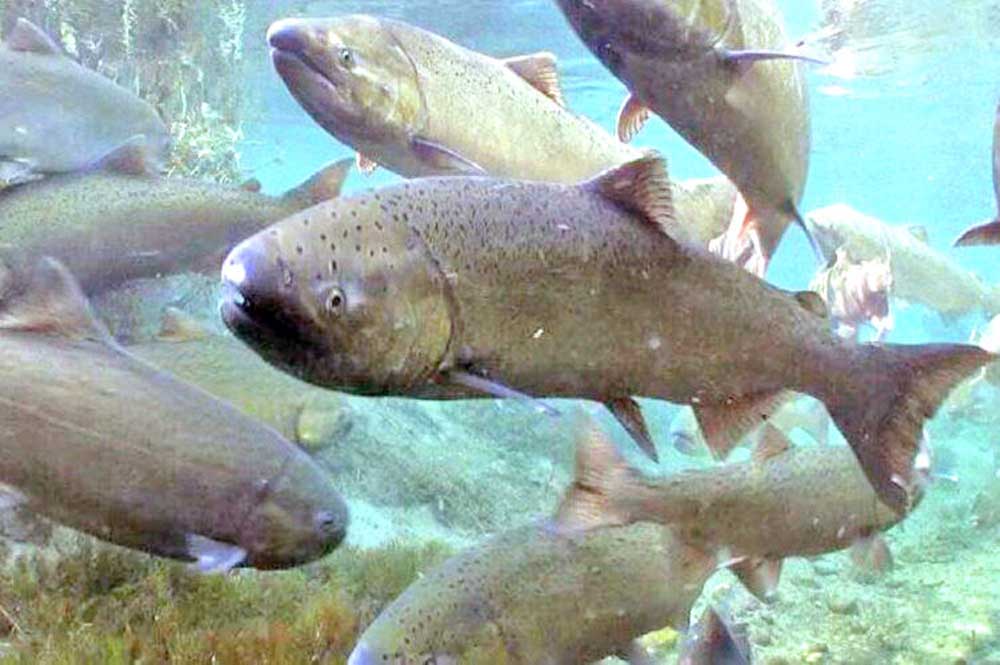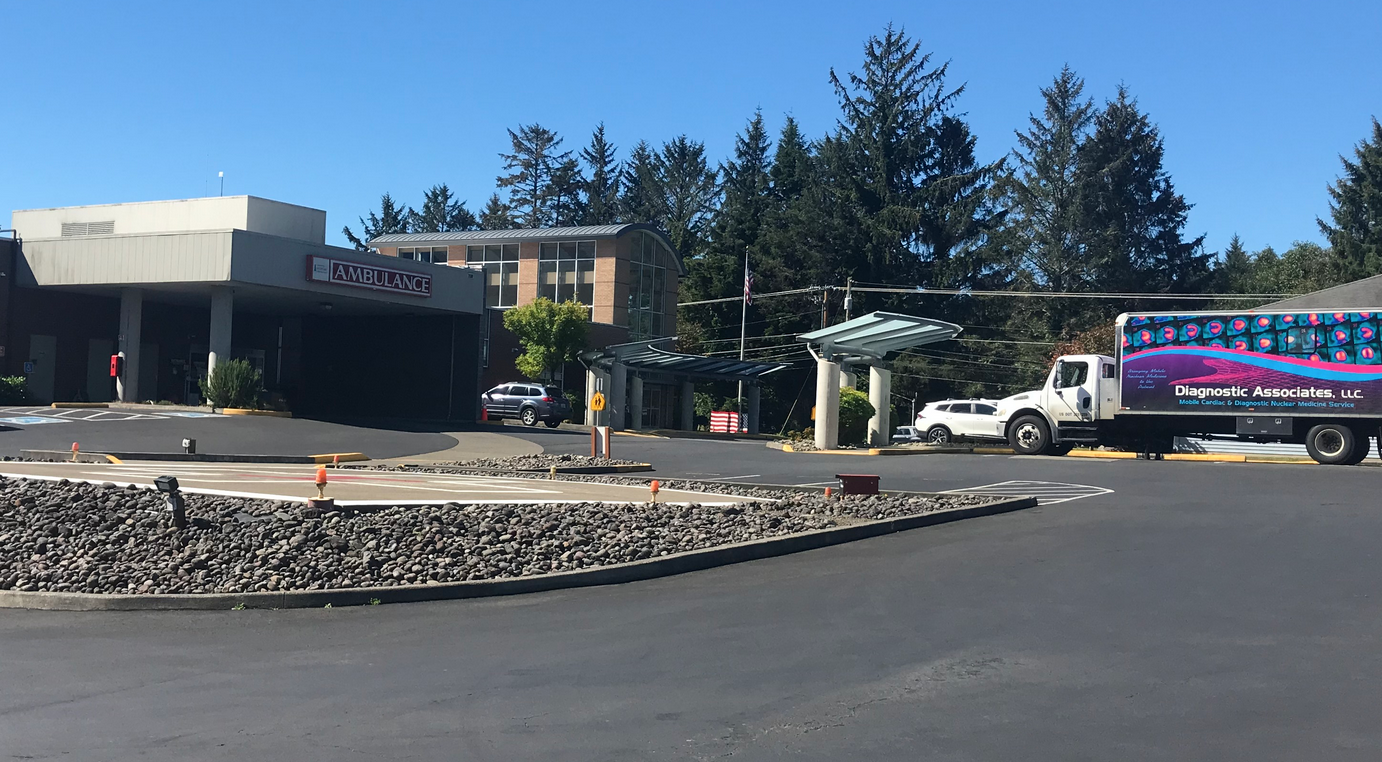OR-CA face salmon fishing restrictions
Published 11:09 am Friday, April 7, 2023

- Salmon face mounting challenges as a gyrating climate brings heavy rain one year and little the next.
NEWPORT — Mark Newell typically buys and processes a lot of salmon and tuna. But this year, he expects that a lack of salmon fishing off Oregon’s southern coast during the spring and summer seasons could wipe out a major chunk of his income.
Trending
Newell, based in Newport and a member of the Oregon Salmon Commission, has been a commercial fisherman since the 1970s and, in the past 15 years, a wholesale seafood buyer and processor. Ocean Beauty in Astoria is one of his accounts.
“It’s a tough deal,” he said. “It’s just tough to have no options.”
He is referring to ocean salmon season alternatives proposed by the Pacific Fishery Management Council, the entity responsible for setting ocean salmon seasons off the Pacific Coast.
Trending
In March, the council unveiled its alternatives for the summer salmon seasons and the picture was bleak.
Extremely poor returns
Earlier presentations by state fish and wildlife departments in Oregon and California had already predicted extremely poor returns to California’s Klamath and Sacramento rivers. Many in the industry were prepared for possible closures in the summer and fall seasons.
The Chinook salmon that return to the two rivers form an important part of Oregon’s ocean salmon fisheries. In the past, the California-bound fish have contributed 60% to 80% of the Chinook harvested along the Oregon Coast. Even last year, with the runs declining, they made up about 25% of the harvested hatchery Chinook stocks off Oregon, according to Eric Schindler, ocean salmon project leader for the Oregon Department of Fish and Wildlife.
With poor returns predicted once again this year, federal fisheries managers said the states need to restrict fisheries dramatically in all areas where the California fish could be intercepted.
In March, the National Marine Fisheries Service — in consultation with fishery managers in Oregon and California and the Pacific Fishery Management Council — canceled the spring commercial ocean troll salmon fishery that runs from Cape Falcon in Oregon to the California border as well as the spring recreational salmon fishery that runs from Cape Falcon to Humbug Mountain.
Now, under the options being considered by the Pacific Fishery Management Council, there could be a recreational fishery for Chinook and coho beginning in mid-June and ocean salmon fisheries off the North Coast will proceed more or less as usual.
But south of Cape Falcon, fishing on Chinook would be severely restricted or — off the southernmost part of Oregon — not allowed at all until at least Sept. 1.
“It’s a painful year,” Schindler said. “It’s not the kind of year that I like to see. We’ve gone through it before, and it was painful then. It’s going to be painful again this year.”
In the early 2000s, the state’s fishery managers and fishermen were in a similar position.
Oregon closed for Chinook salmon in both the recreational and commercial fisheries south of Cape Falcon over concerns about impacts to the California Chinook. A number of commercial fishermen ended up dropping out of the fishery and several charter businesses folded.
Industry concurs
But Schindler said the restrictions this year are necessary — and, for the most part, the industry agrees.
If they fished and final returns came in dangerously low, Newell worries people would see it as fishermen being reckless and overfishing an already stressed population.
“We thought it’d be better just to, you know, take a year off,” he said. “Maybe next year, too — we don’t know. But to let them return and get the seed back into the river.”
Water management
The plight of the Sacramento and Klamath rivers’ Chinook salmon is bound up in water management issues in California. A lack of water has created a desperate situation for returning salmon, as well as juvenile fish just starting out. Fishery managers recorded major die-offs of juvenile salmon in the Sacramento River last year because of issues tied to low water.
However, major rainfall this winter bodes well for the future, Schindler thinks.
“It’s just going to take a while for those stocks to recover,” he said, and added, “Assuming we get another good water year next year and the year after, we might be out of the hole.”
For fishermen who participate in multiple fisheries — crab, albacore or halibut — the loss of salmon is a big deal, but they might be able to weather the season. Other fishermen who rely more on salmon, especially those who operate smaller boats, are in for a rougher summer.
Coho salmon returns are predicted to be good, but commercial fisheries off Oregon’s southern coast will not have as much access to these fish — nor are they as valuable as Chinook. Coho are smaller at about 4 to 6 pounds on average and they might fetch only $3 to $5 per pound. Chinook salmon, by comparison, might weigh on average around 11 pounds and earn a fisherman $7 to $15 a pound depending on the time of year, Schindler notes.
Newell expects to have to range farther than usual to find salmon to sell.
Consumer impacts
Between the limited ocean salmon fishing off Oregon’s southern coast and fishing restrictions in Alaska, Newell expects consumers will also see an impact.
“There’s not going to be very many wild Chinook available on the market,” he said, “and that generally means the price will be very strong. … most likely you would have a hard time finding it and you’re going to pay premium price.”
The Pacific Fishery Management Council will meet again on Friday and decide on the summer salmon seasons. The council’s decision then goes to the U.S. Department of Commerce for final approval.









